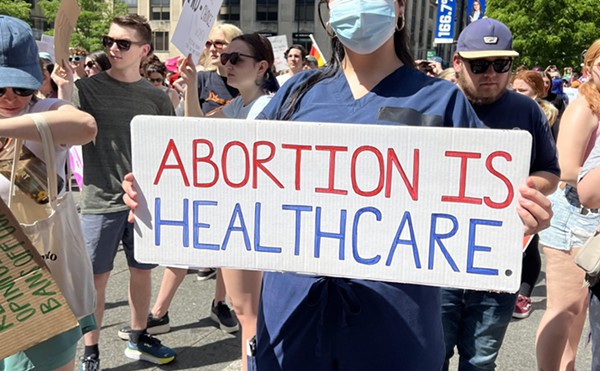|
Slaves aren't usually understood by people who aren't slaves. That was one of the points made in a discussion about modern slavery in Ohio at an Aug. 24 forum sponsored by the Salvation Army of Greater Cincinnati.
"You see a woman on the street, and you judge her because she's a prostitute," said El DeRomano, president of Wake Up Youth Inc. "You don't know what she went through to make her who she is. You don't know the pain or the hell she went through to make her do the things that she does."
The Salvation Army and the National Underground Railroad Freedom Center co-sponsored the event to raise awareness about sexual trafficking in Ohio. Sexual trafficking is the recruiting, harboring or transporting of people into the commercial sex industry. Traffickers use various methods, such as coercion, abduction or deception, to force people to work in brothels, street prostitution or pornography. Victims often don't leave because of fear or being told they owe a huge debt. Men as well as women and children are victimized.
Ohio is popular for trafficking, according to Kathleen Y.S. Davis, state coordinator of Polaris Project, an international organization combating human trafficking and modern-day slavery. One reason is the extensive highway system.
Traffickers can transport victims easily anywhere in the country.
"A lot of traffickers are stopping in Ohio cities such as Toledo, Cleveland, Columbus, Cincinnati, just to make a quick buck off of their girls before they ship them to other locations," Davis said. "We tend to forget that it happens in the U.S. and that the victims are not necessarily always going to be foreign nationals but in fact are American citizens — especially children who are under the age of 16."
Lisa Thompson, the Salvation Army's liaison for the Abolition of Sexual Trafficking, said more than 200,000 U.S. children are susceptible to sexual trafficking. Traffickers promise shelter, love or friendship to gain their trust, she said. For instance, a trafficker makes contact with a potential victim through the Internet or at a mall. The trafficker might tell the girl he'll marry her, but first she has to leave the city. Once the girl is lured away, the trafficker forces her into the sex trade.
Sexual trafficking victims are not always sold for money. DeRomano said young girls are being sold for cars and other goods. Citing statements given by women arrested across the country, she said last year Toledo was the number one recruiting spot in the United States for under-age prostitution.
"I am a survivor of child prostitution and adult prostitution and addiction to crack," DeRomano said. "My mother was a prostitute, and my father was a pimp. At the age of 4, I was removed from my mother's home because my father went to prison for murder."
When she was 9 years old, DeRomano returned to her mother's care. At age 11 she entered into prostitution. She described being beaten and having guns put to her head. She spent five years in a state detention center, where she was molested by a staffer.
"At the age of 19 I started self-medicating myself, trying to forget all the things that had happened to me," DeRomano said.
She began smoking crack and drinking alcohol to escape the memories, which caused more damage.
"I started the process all over again, exploiting myself for what I wanted, which would be crack," she said.
DeRomano said she shares her story to educate others and help victims of sexual trafficking.
"We are a non-traditional organization," she said. "We walk the streets looking for these women. We walk the streets looking for these girls."
The Toledo organization helps victims of sexual trafficking re-enter mainstream society. Services include mentoring, education and reuniting victims with their families.
DeRomano compared victims' experiences to what soldiers in Iraq experience.
"Lord knows what these young girls and these women go through, so they are truly traumatized," she said.
Most arrests in sexual trafficking cases have been on the federal level rather than the state level, Davis said.
"One of the biggest reasons is a lot of folks have no idea what human trafficking is," she said. "They tend to stick with the prostitution paradigm — where, if you're prostituting, you're voluntarily entering the trade."
Identifying victims isn't always easy. Some victims might be working as exotic dancers, in massage parlors or for a legal business. Questions to ask include whether a suspected victim is accompanied by someone who is controlling or someone who collects his or her money for safekeeping. Is he or she rarely seen in public? Calling the Trafficking Information and Referral Hotline at 888-373-7888 is one way to help. The hotline will place a suspected victim in touch with services such as housing and legal assistance.
Cincinnati can help by following examples of what other communities are doing, Thompson said. Atlanta commissioned a study on child prostitution and is trying to establish ways to stop sexual trafficking, she said.
Davis said everyone can help by contacting state representatives to urge support for laws protecting victims and punishing traffickers. She also stressed the need for more training for social service agencies to help identify victims.
"These women and these girls are victims," DeRomano said. "They are not the problem. They are part of the solution, but they have been victimized and everybody needs to remember that." ©





